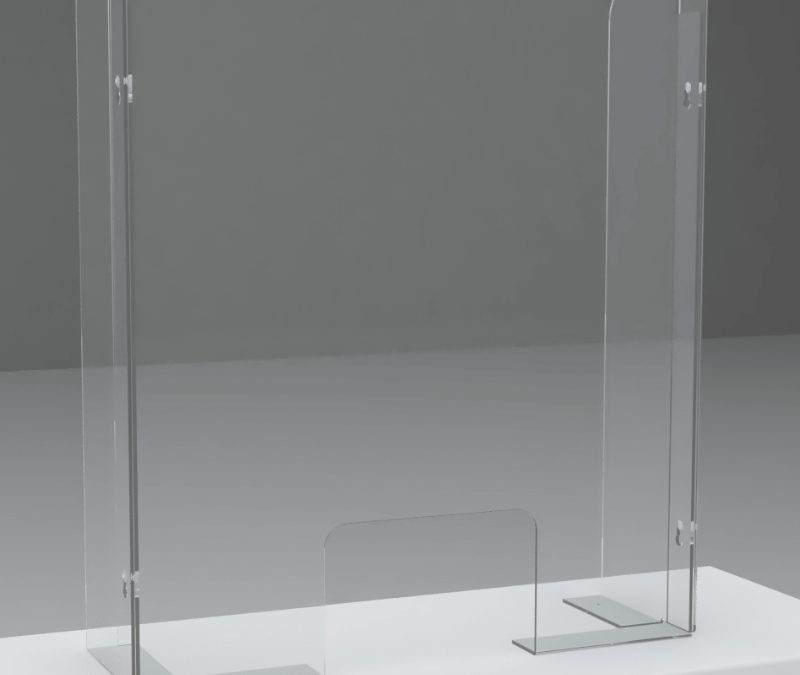Most screen guards are manufactured from some form of plastic / acrylic. Keeping them clean is easy and takes moments.
- Simply clean the screen at room temperature with warm water and a mild soap or detergent. Ideally use a microfiber cloth, and wear disposable gloves.
- Rinse with clean cold water.
- Dry with a soft sponge to prevent water spots.
Never use abrasive or highly alkaline or ammonia based cleaners. Never scrape with squeegees, razor blades or other sharp instruments. Never use benzene, acetone, or carbon tetrachloride to clean the sneeze guard as these can and will result in etching, surface crystallization, decomposition, and stress fractures – breeding grounds for bacteria and virus.
What Are Sneeze Guards Made From?
Most hygiene screens are made from some form of acrylic. Brand names include Perspex® or Plexi Glass. Acrylic is clearer than glass, lightweight and virtually shatterproof. It is easy to clean and maintain. Available in a variety of thicknesses it can offer low cost protective barriers and can be manipulated to create a range of styles.
Do I Need A Sneeze Guard?
Sneeze guards and sneeze screens are recommended for any indoor environment in which people from different households meet. They are recommended for shops, public venues, schools, offices and factories.
One piece of good news is that these hygiene screens are readily available and inexpensive. Off the shelf sneeze guards are suitable for the vast majority of locations. Designs include linkable desk screens for offices and workstations; freestanding screens for desks in office and workplaces, and specific designs for cash desk and till areas and even for nail bar sneeze screens.
If standard products are not suitable then bespoke commercial sneeze screens can be made to suit almost every location and layout.
Where Should I Use A Sneeze Screen?
- Counters, cash desk and till areas
- As desk or workstation screens
- On reception & waiting room desks
- In catering and hospitality venues
- In schools and educational locations
- Nail bars and beauty salons
- Factories, distribution centres etc
- Leisure venues such as cinemas, theatres, gyms etc
Do Sneeze Screens Work?
The Centres for Disease Control and Prevention recommend the installation of physical barriers such as hygiene screens to “mitigate transmission of the virus that causes COVID-19”.


